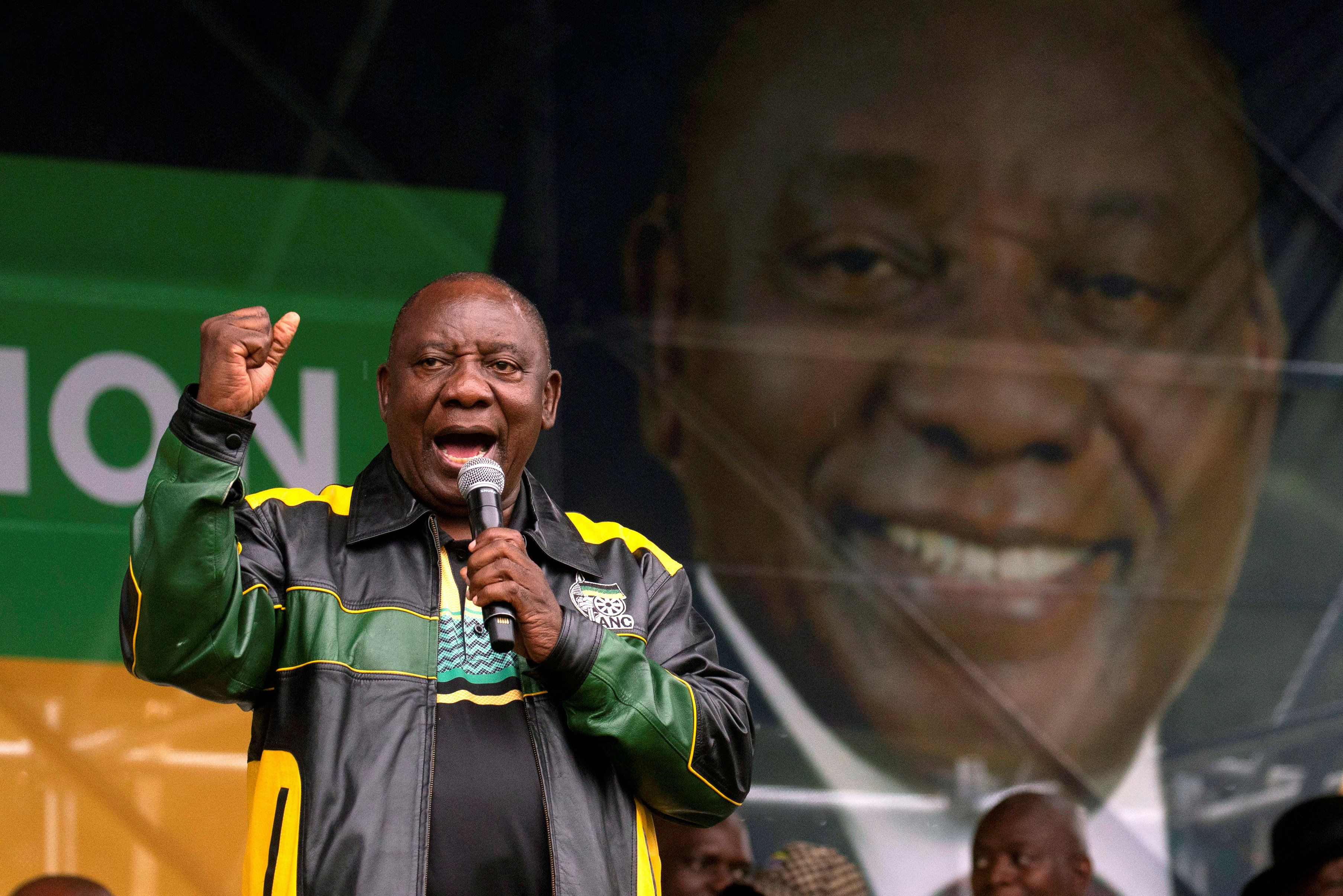May 09, 2019
The votes have now been counted, and it's clear that Cyril Ramaphosa, leader of the African National Congress (ANC), will continue to serve as South Africa's president. But this time he'll lead with a mandate sealed by South Africa's voters following the first national election victory for the African National Congress (ANC) under his leadership.
What sets Ramaphosa apart from other South African leaders, and what is he now up against?
- Ramaphosa has succeeded in many roles: Born in 1952, Ramaphosa spent the 1970s as an anti-apartheid activist and the 1980s as the union-man who led the largest mining strike in South Africa's history. He later served as Nelson Mandela's chief negotiator in the talks that ended apartheid in 1994. Frustrated by his inability to advance within the ANC, he left politics in 1997 to become one of South Africa's most successful businessmen.
- He speaks to a broad audience: Ramaphosa has a formidable skillset. He speaks all 11 of South Africa's official languages—English, Xhosa, Zulu, Ndebele, Afrikaans, Siswati, Sepedi, Sesotho, Setswana, Tshivenda, and Xitsonga—and his diplomatic skills have earned him a global reputation. He served as one of two international arms inspectors helping to disarm the Irish Republican Army as part of the Northern Ireland peace process.
- His path to power has taken twists and turns: When ANC insiders pressured Nelson Mandela, South Africa's first post-apartheid president, to pass over Ramaphosa to choose Thabo Mbeki as his deputy and designated successor, a disappointed Ramaphosa spurned Mandela's government to pursue a seat in parliament. As chairman of South Africa's constitutional assembly, he played the lead role in drafting the country's post-apartheid constitution.
- His greatest battles have been fought within the ANC: Ramaphosa finally became South Africa's deputy president in 2014, but President Jacob Zuma refused to endorse him as his successor. In December 2017, fears within the ANC that Zuma's reputation for corruption would cost the party its hold on power led insiders to oust Zuma and replace him with Ramaphosa. In February 2018, South Africa's ANC-dominated parliament elected Ramaphosa the country's president.
This week, the ANC won a national election with Ramaphosa as its leader.
The president will face many challenges. To protect themselves and their interests against future corruption charges, Zuma and his allies within the ANC are actively working to undermine Ramaphosa's control of the party. Only if he can consolidate control of the ANC can he hope to meet the country's enormous challenges.
A quarter century after he helped end apartheid, Ramaphosa inherits the leadership of a country plagued with endemic corruption, a stagnant economy, high levels of violent crime, frequent electricity blackouts, and an unemployment rate of 27 percent. More than 64 percent of black South Africans still live in poverty. That's why the ANC has seen its vote share fall steadily with each new national election.
Cyril Ramaphosa has wanted this opportunity for 25 years. If he fails to persuade voters that he and the ANC can provide the security and prosperity they've promised, voters may finally decide that the party of liberation should no longer serve as the party of power.
More For You
- YouTube
At the 2026 World Economic Forum in Davos, GZERO’s Tony Maciulis spoke with Ariel Ekblaw, Founder of the Aurelia Institute, about how scaling up infrastructure in space could unlock transformative breakthroughs on Earth.
Most Popular
Haitian soldiers keep a watch outside the venue where businessman Laurent Saint-Cyr is set to be designated as president of Haiti's Transitional Presidential Council (CPT), in Port-au-Prince, Haiti, August 7, 2025.
REUTERS/Fildor Pq Egeder/File Photo
On Friday, US officials warned the transitional council in charge of Haiti not to remove interim Prime Minister Alix Didier Fils-Aimé, ahead of a deadline for the council to step down on Feb. 7.
Moldovan President Maia Sandu speaks during a Council of Europe diplomatic conference to launch the International Claims Commission for Ukraine, aimed at handling compensation claims related to Russia's war in Ukraine, in The Hague, Netherlands, December 16, 2025.
REUTERS/Piroschka van de Wouw
The president of the tiny eastern European country has suggested possibly merging with a neighbor.
Hard numbers: US pitches “New Gaza,” Japan paves way for snap elections, “Sinners” smashes records, & More
Jan 23, 2026
Middle East negotiator and son-in-law of President Trump, Jared Kushner talks with Israeli diplomats following a joint press conference in the State Dining Room of the White House in Washington, DC, USA, 29 September 2025.
$25 billion: The minimum amount of investment required to fulfil Jared Kushner’s ambitious property plan for Gaza.
© 2025 GZERO Media. All Rights Reserved | A Eurasia Group media company.
